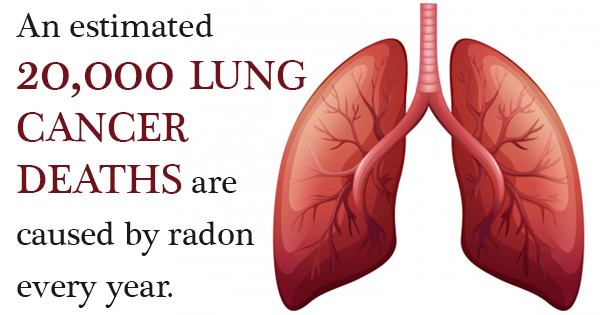Radon is a radioactive gas that you can’t see, smell, or taste. Unfortunately, radon is found in many homes across the United States. According to the U.S. Environmental Protection Agency (EPA) and the Surgeon General’s Office, an estimated 20,000 lung cancer deaths are caused by radon every year.
What is Radon? Properties of the dangerous gas
Radon is a highly radioactive gas that was discovered by English physicist Ernest Rutherford in 1899. Radon is a chemically-unreactive inert gas. It’s the heaviest known gas as it is nine times denser than the air. Because it’s a single atom gas, it has the capability to penetrate common materials like paper, leather, low-density plastic, paint, and other common building materials. This is why local radon testing is so important.
What is radon used for?
Believe it or not, some industries actually use this deadly gas. Radon has been used in some spas for medical effects. Additionally, radon is used to initiate and influence chemical reactions. Scientists obtain radon by pumping the gasses off of a solution of radium salt, sparking the gas mixture to combine the hydrogen and oxygen, removing the water and carbon dioxide by absorption, freezing out the radon.
Exposure of radon gas
The primary routes of potential human exposure to radon are ingestion and inhalation. Radon that’s in the building materials, ground, or groundwater enter into workplaces and living spaces, and it disintegrates into its decay products. This means there could be radon in your home at almost any time. Although high concentrations of radon in groundwater might contribute to radon exposure through ingestion, the inhalation of radon released from water is usually worse.
Radon testing
Radon testing is the only way you can find out if you have radon in your home. There are no immediate symptoms that will hint at the levels of this dangerous gas in your living space. It usually takes several years before any problems surface. The U.S. EPA, Surgeon General, American Lung Cancer Association, American Medical Association, and National Safety Council all recommend testing your home for radon because testing is the only way you’ll know what your home’s radon levels are.
If you’d like to test your home for radon to make sure you’re safe, give us a call today!


Recent Comments